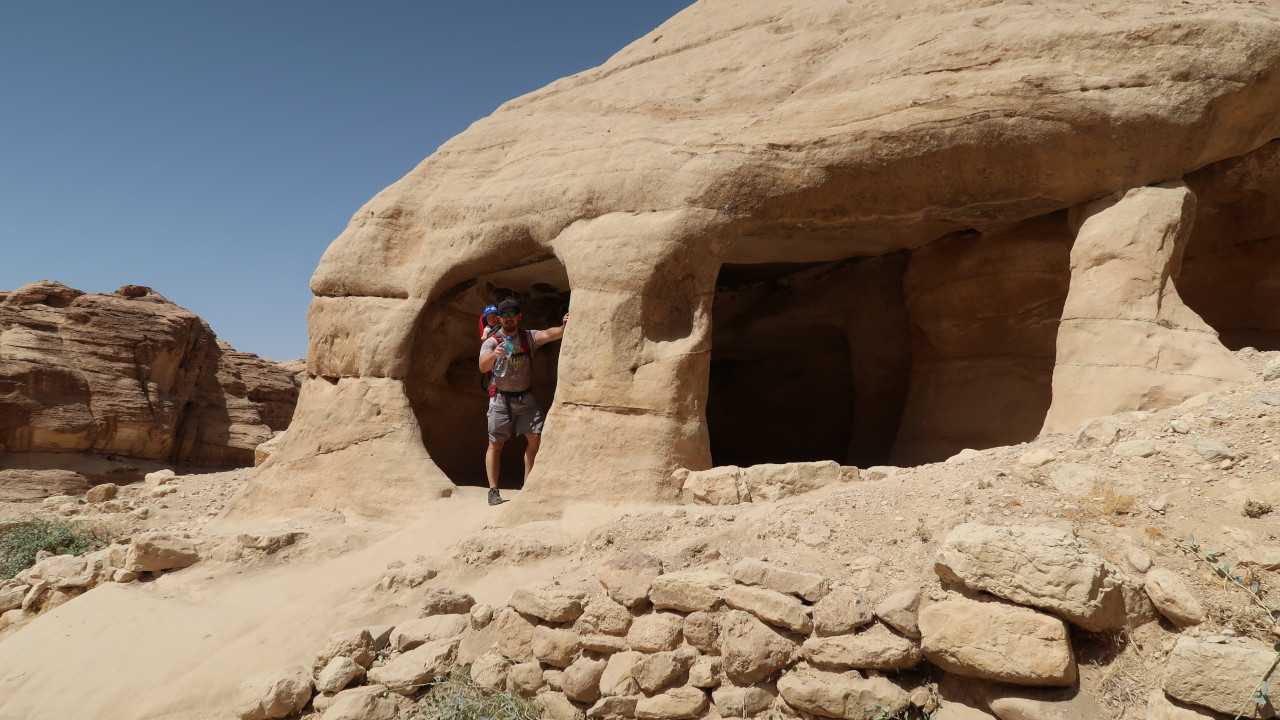One of the first Arabic expressions you’ll encounter in any Arabic course or when travelling is
This term is used by every Arabic speaker - regardless of dialect or religion - right across the Middle East and North Africa.
Ahlan wa sahlan essentially means “welcome” in Arabic.
Read on and I’ll break this term down in more detail.
Ahlan wa sahlan meaning and nuance explained
You’ll encounter the term ahlan wa sahlan all the time and in many different contexts in every Arabic-speaking country.
Its simplest translation is “welcome”, and you’ll most typically hear it when entering people’s homes and stores, or as a general “welcome” from strangers in the country you’re visiting.
It’s easily one of the most common greetings in Arabic.
But ahlan wa sahlan is actually a shortened version of a much older, more formal, pre-Islamic Arabic expression:

حللت أهلًا ووطئت سهلًا
A slight variation of this old expression is:

حللت أهلًا ونزلت سهلًا
In very formal/official welcomes today in countries like Saudi Arabia, these older expressions are still used.
Ahlan (أهلًا) is the word ahl (أهل) with tanween (the an ً sound at the end of the word).
This word means “family”, and by adding the tanween at the end, it indicates the subjects location as being “with family”.
Sahlan literally means “easy”, but it has a much more important nuance here. Going back to the origins of this expression, “easy” is in reference to the ease of walking on the land. In other words, hospitable and friendly territory.
So putting it all together, the nuance of ahlan wa sahlan is basically:
You’re among family, and you’re in safe territory.
I should also add: ahlan wa sahlan can also carry the nuance of “you’re welcome” after a “thank you”.
Just as it does in English, you’ll often hear ahlan wa sahlan as a response when you say shukran (“thanks”).
Short versions of ahlan wa sahlan
Two shorter, more informal versions of ahlan wa sahlan are very common in different parts of the Middle East:
(أهلا). This is without the wa sahlan part. It’s a very common expression and less formal (less of a mouthful!). - Ahlayn (أهلين). This literally means “two ahlans”. You’ll hear this more commonly in the Gulf and Levantine countries, less often in Egypt.
Responding to ahlan wa sahlan
The most common reply to ahlan wa sahlan (or ahlan) is:
(أهلاًبيك) to a male. - Ahlan beeki (أهلاًبيكي) to a female.
- Ahlan beekum (أهلاًبيكم) to multiple people.
Beek literally means “with you”, so what you’re doing here is affirming that ahlan (“your family/own people”) is the greeter/s.
In other words, they say “you’re with family”, and you’re replying “you are my family”.
That’s it. That’s the meaning of ahlan wa sahlan explained.
Also see my list of Arabic greetings and ways to say “how are you” in Arabic for more.
🎓 Cite article
 Grab the link to this article
Grab the link to this article![Black Friday (2025) Huge Language Learning Deals [+ Gift Ideas]](/.netlify/images?url=_astro%2Flanguage-learning-gifts.B3xs8tp4.jpg&w=270&h=152&q=50)












































COMMENTS
NO ADVERTISING. Links will be automatically flagged for moderation.